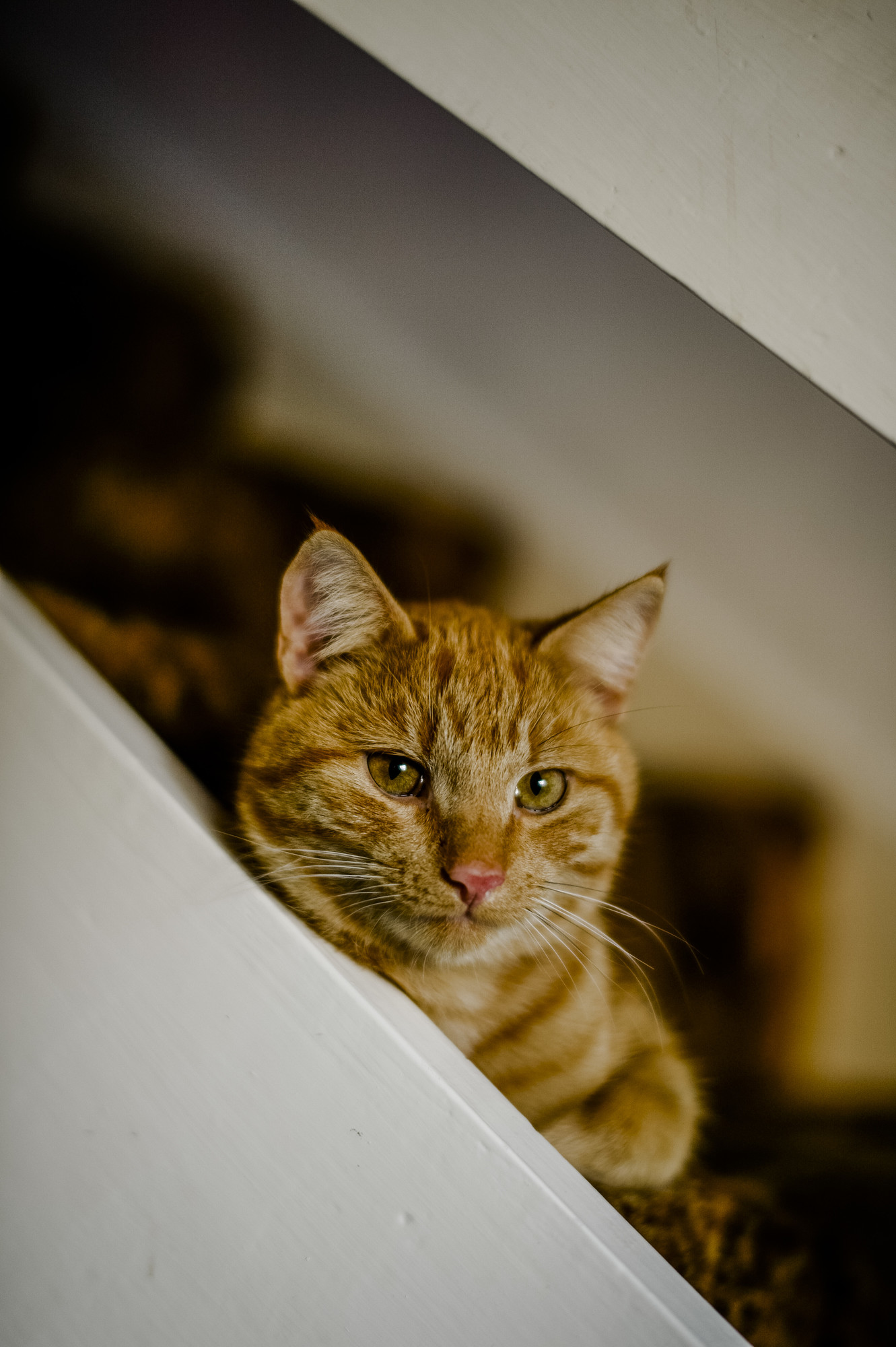
Hyperthyroidism (overactive thyroid) in cats
- Hyperthyroidism means that too much hormone is being produced by your cat’s thyroid glands
- Symptoms can include an increase in appetite, weight loss and a poor coat
- The condition can be diagnosed with a straightforward blood test taken by a vet
- It is very common in older cats and most cases can be treated successfully
What is hyperthyroidism?
Hyperthyroidism is a condition in which the thyroid glands in the neck develop abnormal tissue and produce too much thyroid hormone, causing bodily functions to speed up. The underlying cause is unknown but in rare cases cancer can cause the condition.
When the thyroid glands don’t produce enough hormone it’s known as hypothyroidism, or an underactive thyroid. As a naturally occurring condition, this is very uncommon in cats, although it may be seen as a consequence of some treatments, and responds well to thyroid supplements.
What are the symptoms of hyperthyroidism?
The thyroid hormone has many functions in the body so symptoms of hyperthyroidism may include:
- An increase in appetite
- Increased thirst
- Weight loss
- Restlessness or an increase in activity
- A poor coat with possible hair loss
- Vomiting or diarrhoea
- Urinating in different locations around the house (outside of the litter tray)
- Rapid heart rate
- High blood pressure
How is hyperthyroidism diagnosed?
Your vet will suspect hyperthyroidism based on your cat’s symptoms and a physical examination. Levels of thyroid hormone can then be measured by a blood test to diagnose hyperthyroidism. Other tests may be taken to look for other diseases which may affect the condition. One difficulty is that changes in the body which occur because of hyperthyroidism (particularly high blood pressure) can mask early kidney disease. This may be revealed when hyperthyroidism is reversed by treatment but often can’t be seen on tests prior to treatment.
How is hyperthyroidism treated?
Medical Management
Hyperthyroidism is easily treated with a daily dose of anti-thyroid medication. Tablets and a liquid are available but do not cure the condition, only block the excessive production of thyroid hormone, and need to be given lifelong, usually two or three times daily, at regularly spaced intervals (eg first thing in the morning, early afternoon and last thing at night).
Many cats live long and happy lives with medication to keep hyperthyroidism under control but regular visits to the vet and monitoring tests are often necessary.
Surgery
A common solution for cats suffering with hyperthyroidism is to surgically remove the affected tissues, an operation which is known as a thyroidectomy. It often provides a long-term or permanent cure in most cats. Your vet will initially stabilise your cat’s condition with anti-thyroid medication before performing surgery. As all animals have two thyroid glands, the size of both are inspected at surgery, then one or both removed if they are enlarged. If both are removed, either together or in two separate operations, this may carry an increased risk of post-surgical complications. If one gland is left, it may later start producing an excess of thyroid hormone. There is no rule on whether both glands should be removed together or in separate procedures, and your vet will advise you on the best option for your cat.
After surgery, regular blood tests may be recommended so that your vet can ensure that the thyroid hormone levels are normal. Hypothyroidism or an underactive thyroid can sometimes develop as a result of surgery to address an overactive thyroid. While side effects are uncommon after surgery, your cat may have symptoms including loss of appetite, vomiting and tiredness.
Radioactive iodine therapy
Radioactive iodine therapy is given with a simple injection under the skin and then absorbed by the abnormal thyroid tissue. It then destroys the affected tissues without damaging the surrounding glands or tissues.
It’s a safe an effective treatment and in many cases provides a cure. But this is only available at some specialist centres and is expensive, and requires your cat to be hospitalised for three to six weeks.
Diet
Controlling levels of iodine (which the thyroid gland needs to make the hormones) in the body with a special diet can also help to control the disease in some cases but it is essential that the cat eats only that diet and nothing else This can be tricky if your cat goes out.
Why is it so important to treat hyperthyroidism?
Cats that have hyperthyroidism not only have a reduced quality of life but, if untreated, the condition can result in heart failure, blindness or death. It is therefore recommended that you take your cat straight to the vets if you spot any signs of hyperthyroidism.




